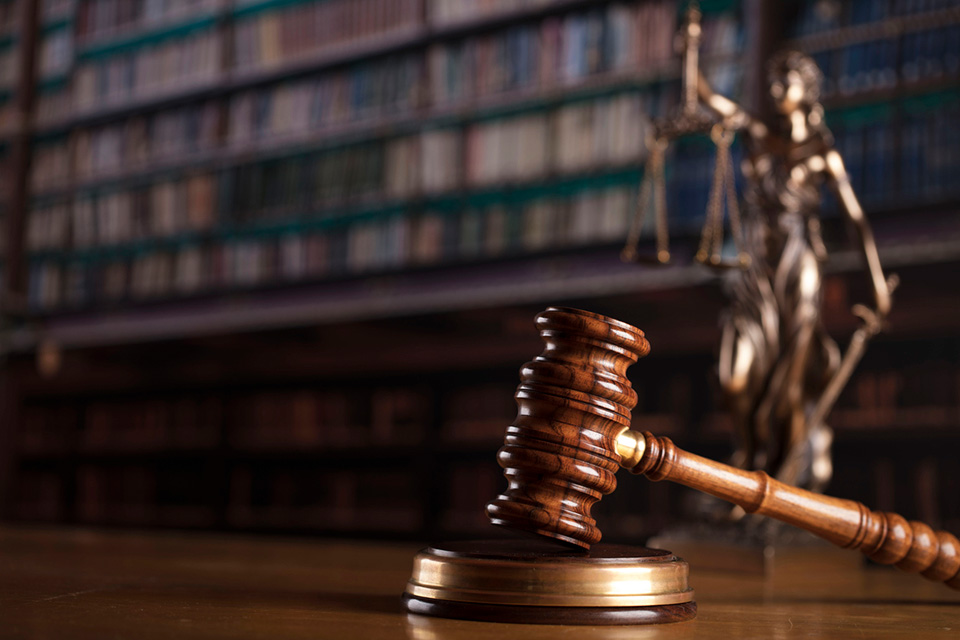Insurance Coverage and Bad Faith
Third Circuit Shuts Down Policyholder’s Requests for Insurance Coverage for COVID-19 Related Business Losses
Wilson et al v. USI Insurance Services, LLC, et al.,
In Wilson et al v. USI Insurance Services, LLC et al., No. 20-3124 (3d Cir. Oct. 8, 2024) the Third Circuit recently denied a petition for rehearing on COVID-19 related coverage disputes brought by both Pennsylvania and New Jersey businesses. In the consolidated appeal of fourteen cases involving businesses in the food service, medical, health and wellness, art, music, and legal sectors, the central issue was whether the businesses’ inability to use their properties for their intended business purposes constitutes “physical loss” of property as the phrase is used in the policies. In an opinion entered in January 2023, predicting how the Supreme Courts of Pennsylvania and New Jersey would decide the issue, the Third Circuit had held that it does not. See Wilson v. USI Ins. Services, LLC, 57 F.4th 131 (3d Cir. 2023) Looking to the plain meaning of the phrase “physical loss of or damage” the Court noted that the businesses would have to show that the functionalities of their properties were nearly eliminated or destroyed, that the structures were made useless or uninhabitable, or that there was an imminent risk of either of those things happening in order to trigger coverage. They could not show this because the properties could be used or inhabited, just not in the ways the businesses would have liked.
The policyholders’ petitions for rehearing in Wilson v. USI Ins. Services, LLC, No. 20-3124 asked the court to reconsider its 2023 decision, and allow the Pennsylvania Supreme Court to weigh in, since the appeals of Ungarean v. CNA and Macmiles v. Erie Insurance Exchange were pending before the Pennsylvania Supreme Court. In Ungarean, the Supreme Court held that a dental practice did not allege the requisite direct physical loss of or damage to property because the government ordered COVID-19 shutdown cannot constitute direct physical loss of or damage to any property. In so finding, the Supreme Court noted that the only reasonable construction of the phrase “direct physical loss of or damage to property” required either (1) the physical disappearance, partial or complete deterioration, or absence of a physical capability or function of the property, or (2) a physical harm or injury to the property. In other words, there must be a physical alteration of the subject property.
Support for this conclusion was found in the policy’s definition of “period of restoration” which defined the period of time in which the premises should be repaired or rebuilt with reasonable speed and similar quality, and the Supreme Court rejected the insured’s argument that new installations to prevent the spread of the virus, such as additional handwashing stations and partitions did not qualify as repair, rebuilding, or replacement of the premises. Finally, it noted that the government ordered shutdown did not cause a physical alteration of the property, and even if a loss of use could qualify as physical loss, in those circumstances it did not because the dental practice still had the ability to access the premises and use it for emergency dental procedures. In a one-page order entered the same day, the Pennsylvania Supreme Court in Macmiles affirmed the Superior Courts decision based upon its decision in Ungarean, which addressed the same issues raised in Macmiles.
Earlier this year, the New Jersey Supreme Court had likewise ruled that standard commercial property insurance policies do not cover business interruption losses caused by the COVID-19 pandemic. In AC Ocean Walk, LLC v. Am. Guarantee Liab. Ins. Co., 307 A.3d 1174 (N.J. Jan. 24, 2024), the New Jersey Supreme Court interpreted the phrase “direct physical loss” to require physical damage in the form of destroyed or physically altered property and that loss of the ability to use the property for their intended purposes by virtue of a government order is completely divorced from the physical condition of the premises; that is, absent the government orders the business would have carried on uninterrupted. It similarly recognized that policy language referencing repairs, rebuilding, or replacement compelled a finding that there must be physical alteration to the property.
The decisions in Ungarean and Macmiles confirmed the Third Circuit’s prediction that the highest courts in Pennsylvania and New Jersey would rule that COVID-19 related economic losses do not constitute direct physical loss, because the functionalities of the properties were not altered, and the insureds could still utilize the properties, albeit not in the manner they desired. The Third Circuit in Wilson denied the policyholders’ petitions for rehearing with no explanation in a one-page order.
These rulings also led to the dismissal of the Philadelphia Eagles’ coverage dispute with its insurer for COVID-19 related damages. In Philadelphia Eagles Limited Partnership v. Factory Mutual Ins. Co., No. 2022 WL 17721040(E.D. Pa. Dec. 15, 2022), Factory Mutual Insurance Company had moved to dismiss the Eagles’ complaint back in 2022, but the Court had taken the motion under advisement, choosing to delay ruling on the matter in light of the then-pending appeals in Ungarean and Macmiles, as well as Wilson, and also permitting the parties to engage in limited discovery. The Eagles had argued that the terms “physical loss,” and “physical damage” must be considered as separate terms with independent meaning, and that limitations on the use of the property due to threat of contamination would trigger coverage. The case had been in suspended status since February 2023, but the Court revisited Factory Mutual’ s motion in light of the ruling in Ungarean and on October 16, 2024, issued a single-page order granting the motion to dismiss.
The Pennsylvania Supreme Court’s ruling in Ungarean likely dealt the final blow to COVID-19 loss claims in Pennsylvania, and it is likely that lower courts will issue similar rulings dismissing any pending coverage disputes over COVID-19 related losses.
If you have any questions, please contact Houston Harbaugh, P.C.’s Insurance Coverage and Bad Faith Practice Group, or Lisa R. Whisler at 412-288-5008 or whislerlr@hh-law.com.
About Us
We’re committed to staying on top of the issues of today and tomorrow, such as the ever-changing landscape involving bad faith, cyber-insurance, and insurance for advanced technology sectors, artificial intelligence players, machine learning companies, and autonomous vehicle manufacturers and users.

Alan S. Miller - Practice Chair
Alan has more than thirty-eight years of experience in complex litigation and counseling, concentrating in the areas of environmental law, insurance coverage and bad faith, and commercial litigation. He chairs the firm’s Environmental and Energy Law practice and the Insurance Coverage and Bad Faith Litigation Practice.
Alan’s environmental law practice has involved counseling, litigation and alternative dispute resolution of matters involving municipal, residual, and hazardous waste permitting and compliance, contribution and cost recovery actions under CERCLA and related state statutes, claims for natural resource damages, contamination from leaking underground storage tanks, air and water pollution regulatory permitting and enforcement actions, oil and gas drilling compliance and transactions, and real estate transactions involving contaminated and recycled industrial sites.

